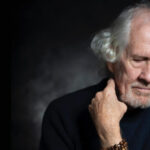
The Paradox of Happiness: Why Desiring More Makes Us Miserable
By Darius Faroux
A foundational idea in modern society is that we all need to strive for more. You can see this everywhere, from movies, books, articles, to the way people speak in private.
(…)
You see the desire for more in many ads as well. One of the best examples is a marketing campaign that McDonald’s ran a few years ago called “You deserve more.” It’s about their breakfast, and apparently, Micky D thinks we all deserve to have “more savory, more sweet.”
But it’s not the fault of companies and advertising agencies. They just give us what we want.
Many of us really believe that our desire for more is what makes us happy. (…) The tragedy is that the desire for more doesn’t create happiness – but destroys it. The human mind is not one that’s appreciative of the present. As soon as we accomplish something, we become restless. We need to accomplish and have even more.
We live in a world where Chanel can increase their bags by nearly 60% without any pushback from their customers. If we want something, we need to have it, no matter what it costs or how much we have to sacrifice.
What happened to being okay with what you have?
One of the earliest philosophers, Heraclitus, said:
“Just keep in mind: the more we value things outside our control, the less control we have.”
It reminds us that the more you value external things, the less you value yourself. Because (…) you can be happy even if you don’t have everything you want.
But these days, when we can’t afford something, we simply borrow money or get another job. Just get into debt or sacrifice your time and energy so you can purchase something.
How ancient wisdom can help you to crave less
The philosophy of Stoicism is great for overcoming our natural desire to do and acquire more. Seneca, the Stoic philosopher who had first-hand experience with being wealthy, had a firm belief about the desire for more. He said:
“It is not the man who has too little, but the man who craves more, that is poor.”
The idea is that true wealth means you’re good with life the way it is, no matter how many possessions you have, it will be enough. But that’s a hard mindset to obtain because we’re all so restless. When we give in to our cravings, we only end up craving more.
The best way you can overcome this superficial way of life is to continuously work on your wants.
(…)
In the spirit of another Stoic, Epictetus, who said that “wealth consists not in having great possessions, but in having few wants,” let’s look at ways we can make sure we have few wants.
- Tell someone you’re grateful: This is a more effective strategy than keeping it to yourself. When you only think of the things you’re grateful for, the feeling of gratitude hardly sticks. But when you tell someone you’re grateful for the relationship you have, whether that’s a friendship, romance, or in a professional setting, you also make others feel good. (…)
- Have a plan B and C: When you think you need something, you become dependent on that thing. … But as the Stoics knew, we hardly ever get what we want. That’s why it’s important to have multiple backup plans. (…)
- Do things you actually enjoy: This sounds obvious, but how often do you do things you don’t enjoy? … Not a good situation to be in. (…)
- Live simply: We all get used to everything. When you upgrade your lifestyle, you get used to it and anything less than what you have will feel like torture. The best way to avoid the hedonic treadmill is to never get on it. (…)
- Stay tough: We can make life so comfortable that we don’t even have to get out of the house to live well. You can earn a living from home. You can work out at home. You can turn up the heat when it’s cold. You can order any food you like. But comfort makes you soft. And life is hard. So it’s better to be hard as a person. Take the stairs, continue your plans even if the weather sucks, travel lightly, walk to places you can, and so forth. Avoid taking the easiest option.
(…)






























